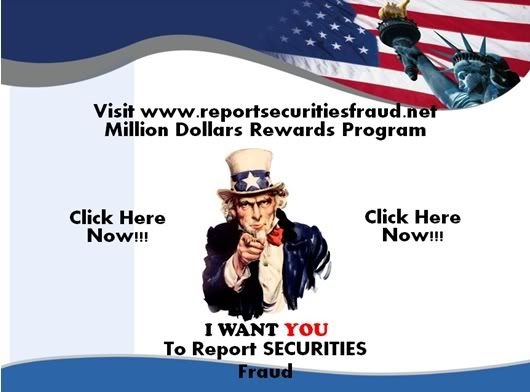Source-
http://www.sec.gov/news/press/2013/2013-110.htm
Washington, D.C., June 13, 2013 — The Securities and Exchange Commission today charged cosmetics and beauty care manufacturer Revlon with violating federal securities laws when the company misled shareholders during a "going private transaction."
Going private transactions can occur in many forms and typically involve the company delisting and deregistering its stock and cashing out their shareholders so the company or a private equity firm can acquire all of the outstanding shares. An SEC investigation found that during a voluntary exchange offer to satisfy a significant debt to its controlling shareholder, Revlon engaged in "ring fencing" that deprived its independent board members from knowing critical information: the transaction's consideration had been deemed inadequate by a third party who evaluated whether current and former employees invested in Revlon common stock through the company's 401(k) plan could exchange their shares.
Revlon agreed to settle the SEC's charges and pay an $850,000 penalty.
"Going private transactions create opportunities for shareholder abuse and can have coercive effects on minority shareholders," said Antonia Chion, Associate Director in the SEC's Division of Enforcement. "By erecting informational barriers, Revlon kept critically important information from its board and, in turn, misled investors."
According to the SEC's order instituting settled administrative proceedings, controlling shareholder MacAndrews and Forbes (M&F) asked Revlon in 2009 to offer minority shareholders the option to exchange their common stock shares on a one-for-one basis for preferred shares with certain financial characteristics. The exchanged shares would then be provided to M&F to pay down Revlon's debt. The trustee administering Revlon's 401(k) plan decided that 401(k) members could tender their shares only if a third-party financial adviser made an "adequate consideration determination," which involved assessing whether the value of the preferred stock 401(k) members would receive was at least equal to the fair market value of the exchanged common stock shares. The third-party financial adviser ultimately found that the consideration offered in the transaction was inadequate for tendering 401(k) shareholders.
The SEC's order finds that Revlon did not want to disclose the third-party financial adviser's view on the adequacy of the transaction's consideration. In an attempt to avoid a potential disclosure obligation, the company engaged in what one employee termed as "ring fencing" to avoid receiving the adequate consideration determination from the third-party adviser:
Revlon amended the trust agreement it had with the trustee to ensure that the trustee would not share the adequate consideration determination with Revlon.
Revlon ensured that it was not a party to any engagement letter concerning the adequate consideration determination.
Revlon directed the trustee to inform Revlon of its decision whether to allow 401(k) members to tender their shares without any reference to the adequate consideration determination.
In a notice sent to the 401(k) members and publicly filed as an exhibit to the exchange offer documents, Revlon removed the explicit term "adequate consideration" and replaced it with citations to ERISA statutes.
The SEC's order finds that Revlon's ring-fencing conduct resulted in various materially misleading disclosures to its shareholders. For example, Revlon represented in its offering documents that the board's process was full, fair, and complete in determining the fairness of the exchange offer. In reality, the process was compromised because Revlon's board was unable to consider the adequate consideration determination as part of its process to evaluate and ultimately approve the offer. Thus, Revlon's shareholders were deprived of the opportunity to receive revised, qualified, or supplemental disclosures, including any that might have informed them of the adequate consideration determination.
The SEC's order finds that Revlon violated Section 13(e) of the Securities Exchange Act of 1934 and Rule 13e-3(b)(1)(iii), which prohibits issuers and their affiliates in going private transactions from directly or indirectly engaging in any act, practice, or course of business that operates or would operate as a fraud or deceit. The SEC's order requires Revlon to cease and desist from committing or causing these violations and any future violations. Without admitting or denying the SEC's findings, Revlon agreed to the settlement and financial penalty.
************************************************************************
Report Securities Fraud by Calling 1-888-985-9844 or by visiting



























